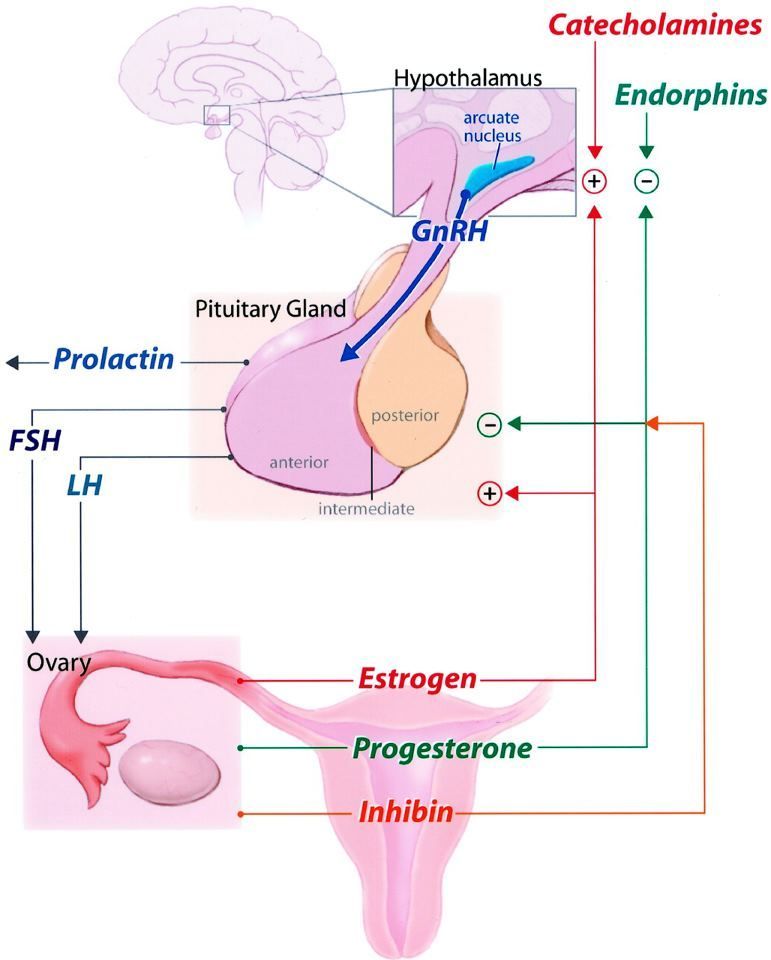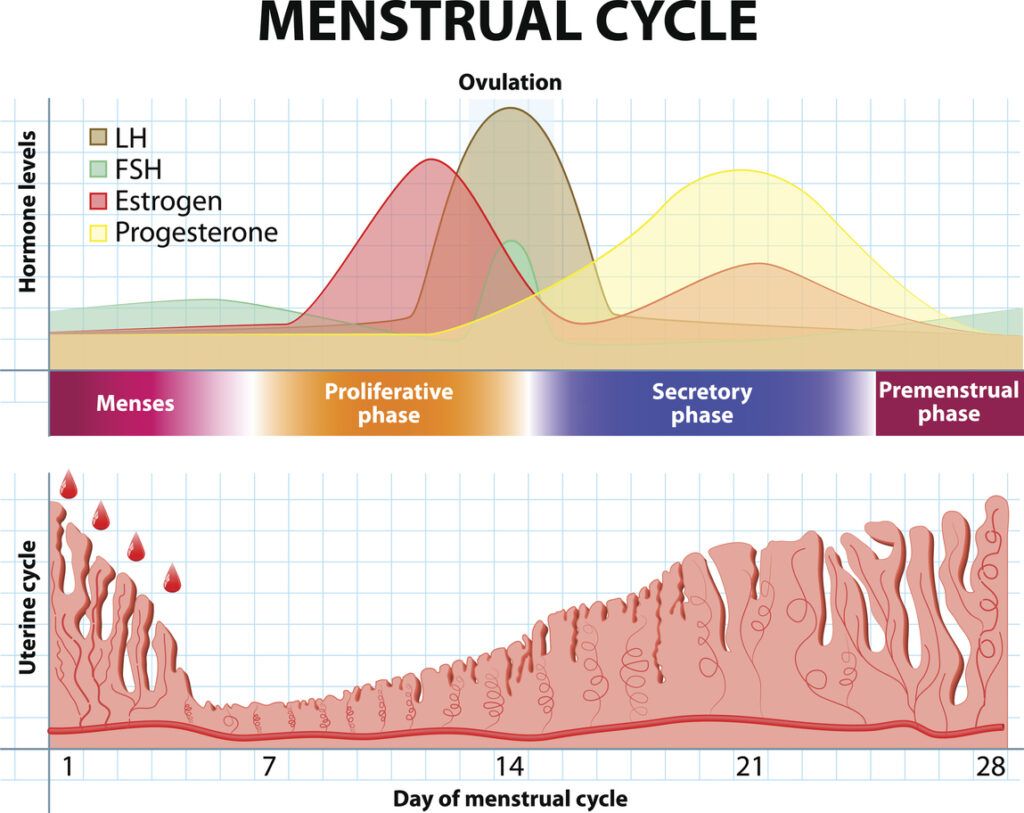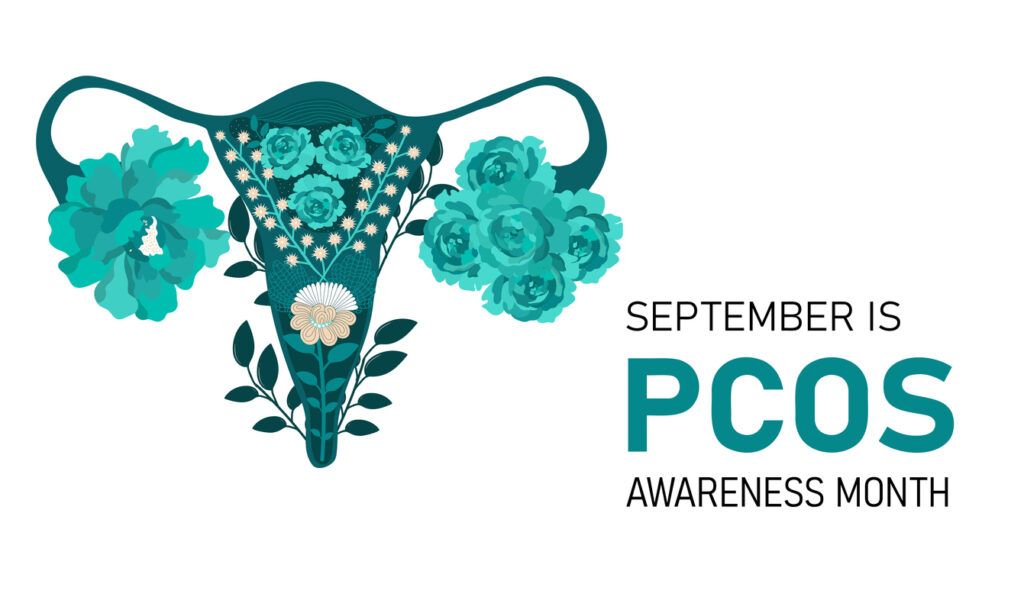What is PCOS?
Polycystic ovarian syndrome is a disorder of elevated “male” hormones, or androgens such as testosterone, in a woman’s body leading to a lack of ovulation. This in turn leads to missed periods. Ovulation is the monthly process of the ovary producing an egg for pregnancy. If the egg is fertilized by a sperm then you become pregnant. If the egg isn’t fertilized you will have your period. So if you don’t ovulate you won’t become pregnant or have a period.
A genetic female has two ovaries. They take turns each month ovulating. If you only have a period every other month, it may mean that just one ovary is working, and this too may be PCOS.
It is estimated that almost 5 million women of childbearing age in the United States have PCOS. Family history and weight are thought to be factors in the cause of PCOS, but it is not yet truly known.
If you are overweight and have a family history you are at risk for this disease developing. It is the number one cause of infertility in women. So it is often first diagnosed when a woman is having difficulty becoming pregnant, though it can develop at the onset of menses when you are just a preteen.
Hormone levels and PCOS:
- Testosterone: Women produce testosterone and their levels change throughout their life such as increasing post-menopause. With PCOS, testosterone levels tend to be elevated more than they should during a woman’s childbearing years.
- Sex hormone-binding globulin (SHBG) is not actually a hormone, but a protein in the bloodstream. This protein grabs a hold of testosterone and inactivates it. So it helps decrease testosterone in a woman’s body thereby increasing ovulation and fertility. SHBG is often low in PCOS patients so it isn’t available to decrease the effects of testosterone.
- Luteinizing hormone is the hormone that is elevated during a women’s monthly menstrual cycle and stimulates her ovary to produce an egg. In PCOS this hormone is more elevated than usual all of the time leading to no ovulation.
- Prolactin hormone may sometimes be elevated in PCOS, though not always. It stimulates breast milk production.
- Follicle-stimulating hormone is another hormone that aids in ovulation. It is not usually changed in PCOS, rather it has to be equal to the amount of LH in a woman’s body for ovulation to occur. It is usually a 1:1 ratio between the two, but when LH is elevated this ratio increases and ovulation doesn’t occur. FSH and LH ration may be normal though so it doesn’t exclude a PCOS diagnosis.
These hormones may be stimulated by a gland in the brain called the pituitary gland, the thyroid gland in the neck or the ovary. There can be many factors in any of these organs or glands that can cause a dysfunction leading to PCOS.

What are the complications of PCOS?
- Diabetes—greater than half of PCOS patients has diabetes by the time they are 40.
- Gestational diabetes—diabetes during pregnancy
- Sleep apnea due to obesity. Sleep apnea is difficulty breathing at night increasing the risk for chronic fatigue, high blood pressure, stroke and heart disease.
- Stroke
- High blood pressure
- Heart disease
- Obesity
- Elevated cholesterol
- Depression and anxiety
- Endometrial cancer risk is increased due to the lack of menstrual periods. Remember the period is washing away the endometrial lining of the uterus every month when you don’t get pregnant. If you don’t have a period this endometrial lining builds up and increases the risk of cancer in the lining of the uterus.

What are the symptoms of PCOS:
- Obesity-It is not clear if PCOS causes obesity or vice versa. Fat cells do produce more estrogen which in turn affects testosterone.
- Infertility
- Irregular or absent menses
- Hirsutism—male pattern hair on the face and body
- Acanthosis Nigricans—darkening around skin folds such as in the armpits and at the back of the neck
- Linea nigra—dark line from the belly button to the pelvic area
- Acne
- Thinning scalp hair
How is PCOS diagnosed?
Your doctor may order multiple tests such as cholesterol, pelvic ultrasound, hormone levels, thyroid tests and even a brain scan.
Sometimes it is diagnosed by the following criteria. You only need 2 of 3 of the following as long as other causes have been ruled out:
- Absent or irregular menses
- Multiple cysts, or follicles, noted in the ovary on pelvic ultrasound. They are building up in the ovary but not being ovulated due to a lack of hormone stimulation.
- Increased signs of testosterone levels OR elevated testosterone tests.
Signs of high testosterone levels can include thinning scalp hair, male pattern coarse dark hair on the face and body, acne, mental health changes and obesity.
Many factors may come into play to diagnose PCOS. If you don’t meet the following diagnostic criteria but have other symptoms, such as increased LH/FSH ratio and obesity, this may help aid in the diagnosis of PCOS.
Is there a treatment for PCOS?
While there is not a cure for PCOS there are treatments that may help with the symptoms. PCOS may go away but it is often a chronic disease.
Treatments include:
- Hormone therapy such as birth control. Not only can this help the symptoms it decreases your risk of cancer by decreasing the thickness of the uterine lining caused by PCOS.
- Diet and exercise help many aspects of PCOS. Just losing 5% of your body weight may decrease the symptoms including your risk of high cholesterol and diabetes associated with PCOS. This is very important as weight loss may be the cause of PCOS.
- Glucophage and other diabetes medications have been shown to decrease PCOS symptoms, increase fertility and decrease insulin resistance.
- A surgery called Laparoscopic ovarian drilling (LOC) is sometimes performed for PCOS. It can decrease your testosterone levels, boost your FSH and lower your LH. This can restore normal ovarian function.
- Spironolactone and finasteride are medications that help with the unwanted hair side effects of PCOS by lowering your testosterone levels.
- Laser hair removal, waxing and creams may also aid in the removal of unwanted male pattern hair.
Talk to your doctor about what is best for you. While you may not be able to cure PCOS you can attack the symptoms with a variety of treatments.
Polycystic ovarian syndrome tests: How to make the diagnosis, Advanced fertility center of Chicago, Advancedfertility website, accessed Sept 2022
Spironolactone April 2022, Drugs.com, Drugs.com website, accessed Sept 2022
